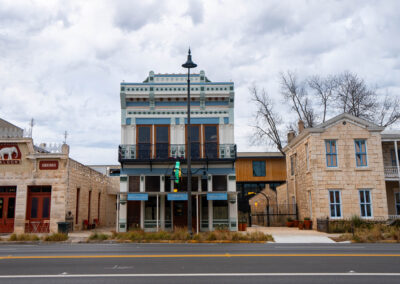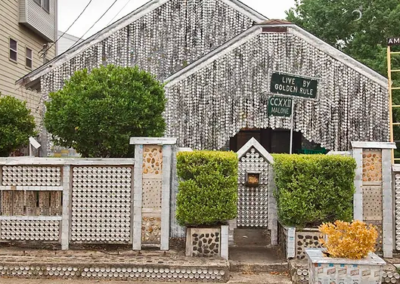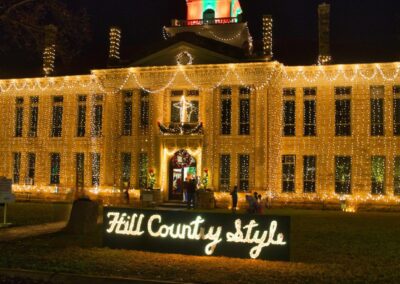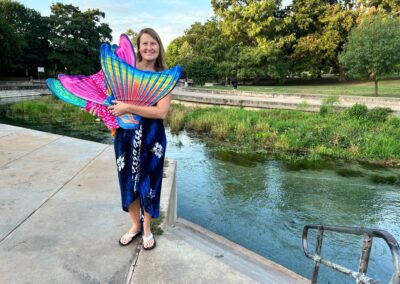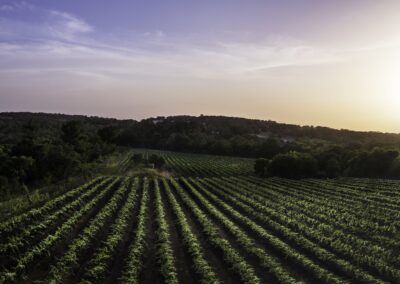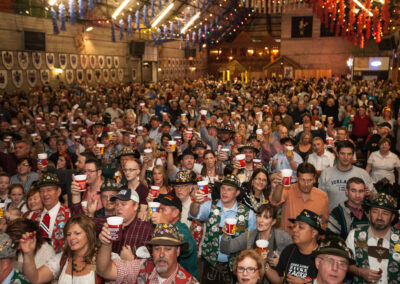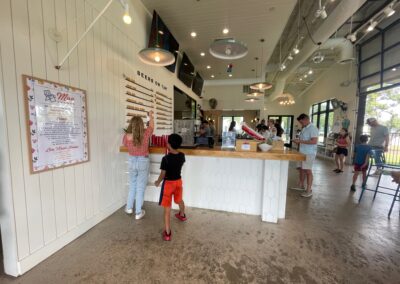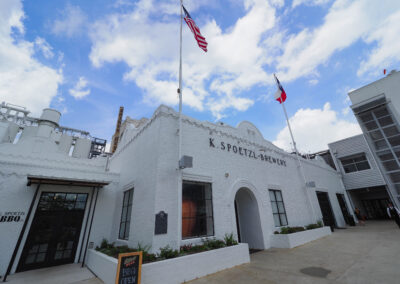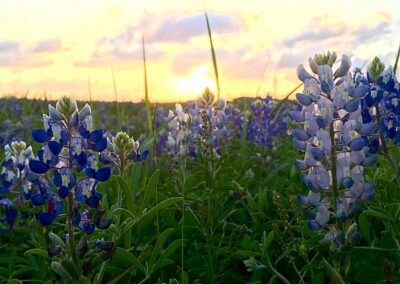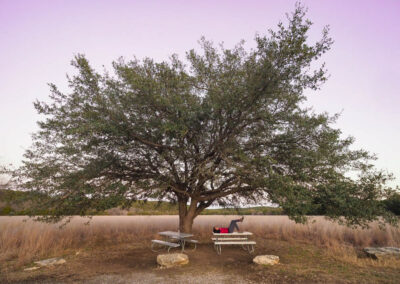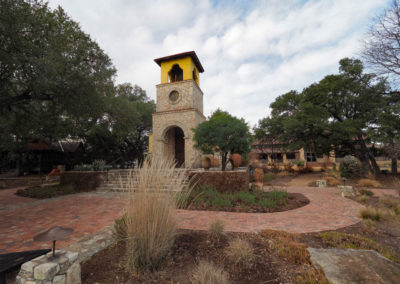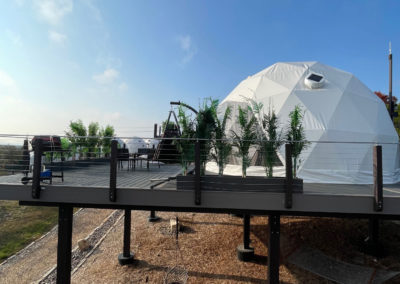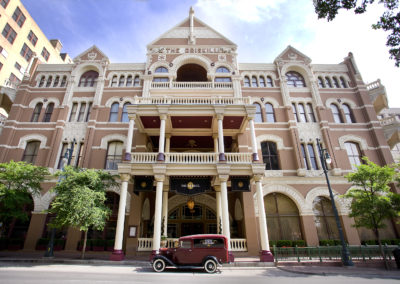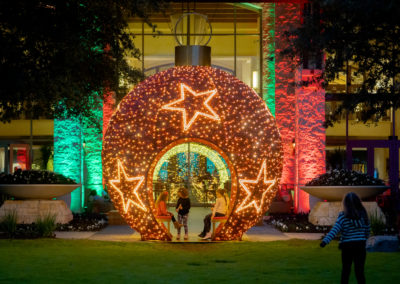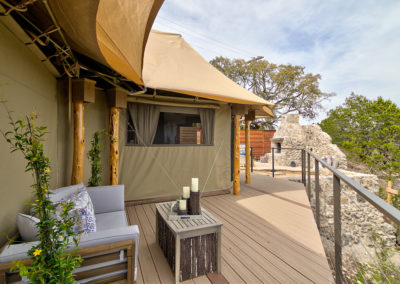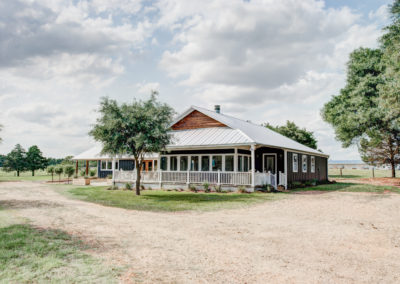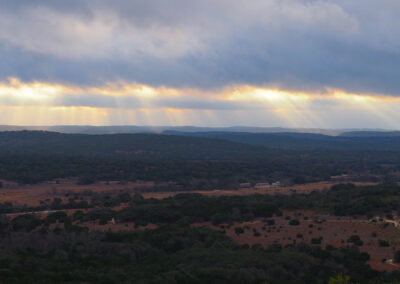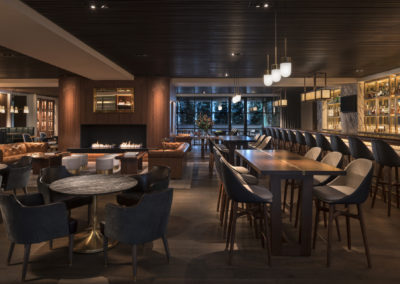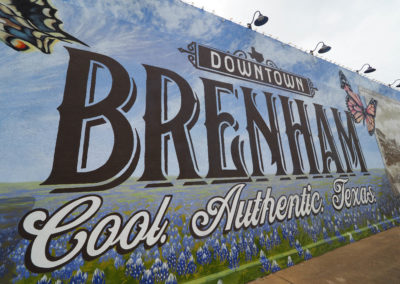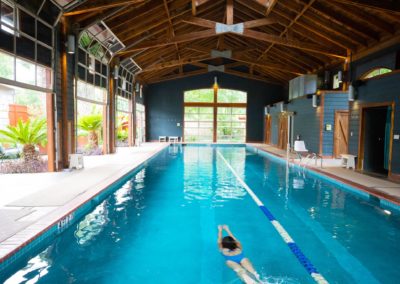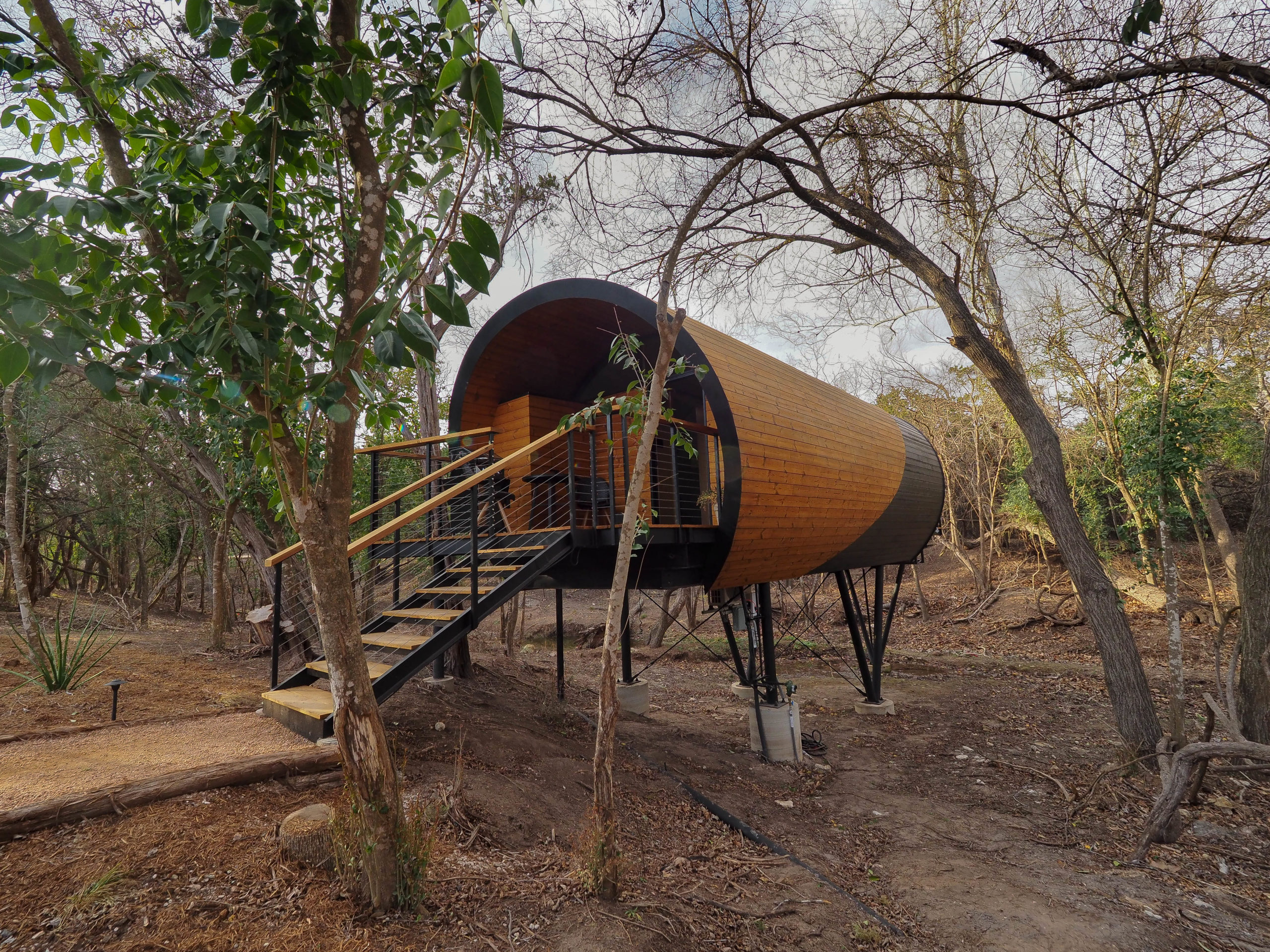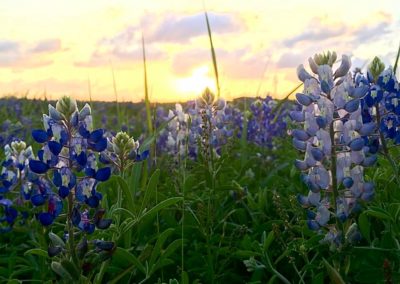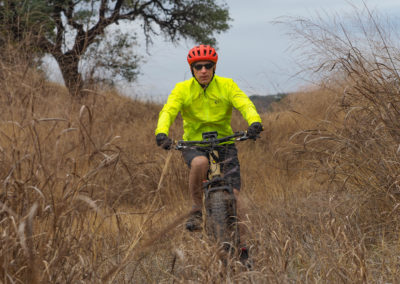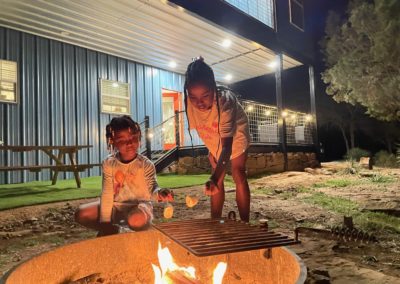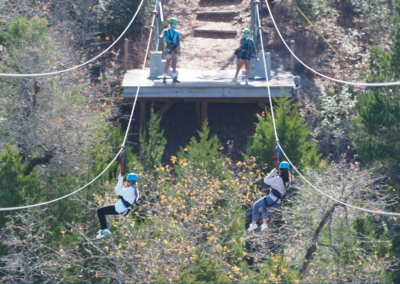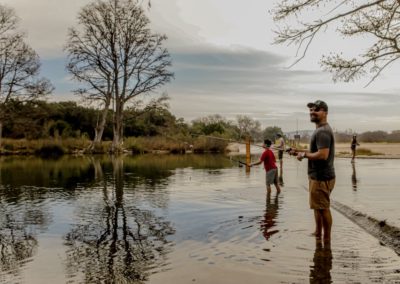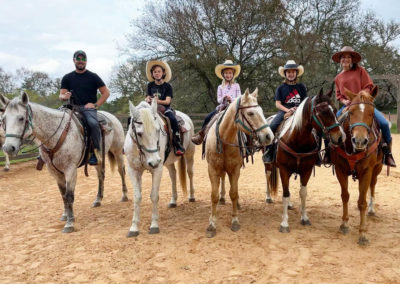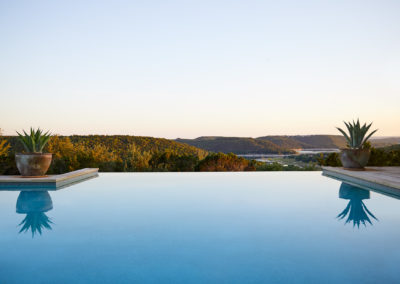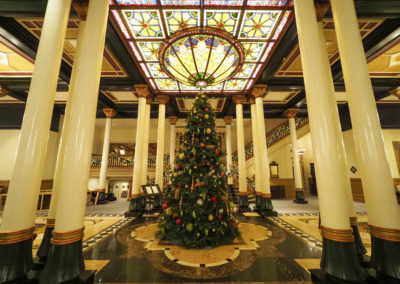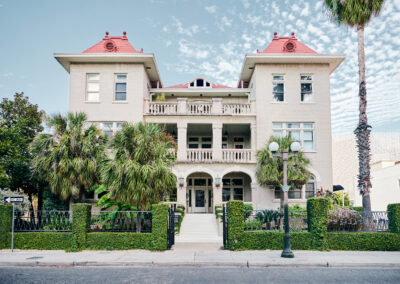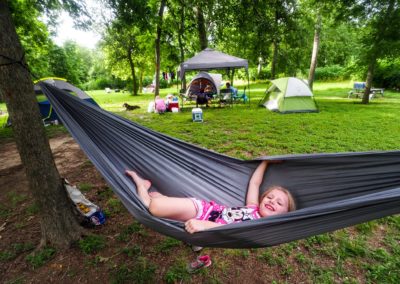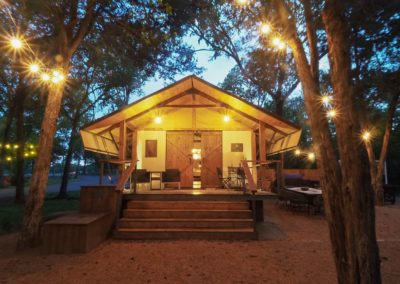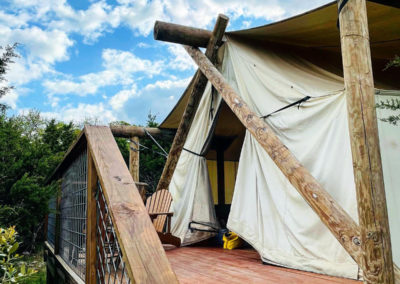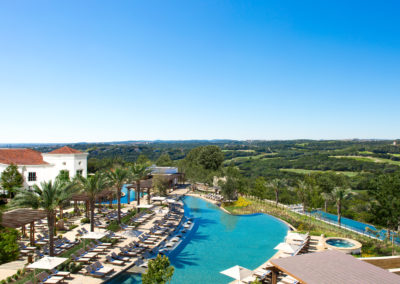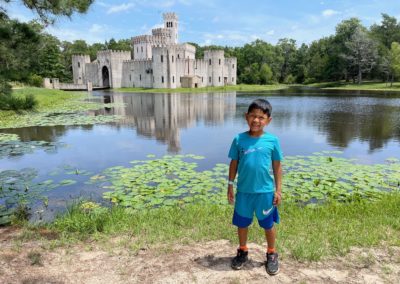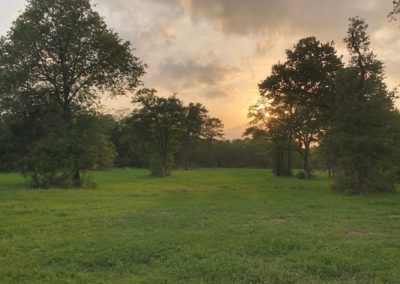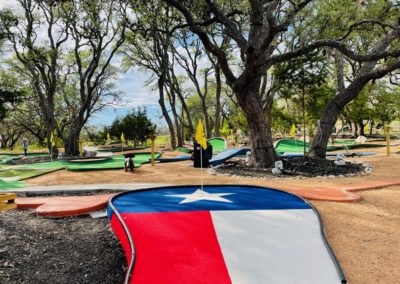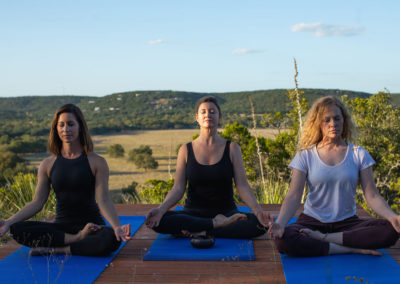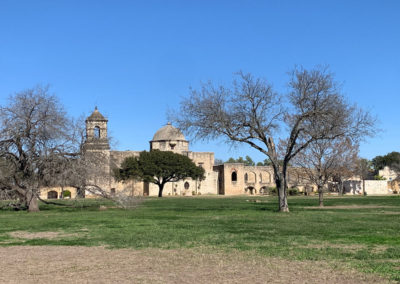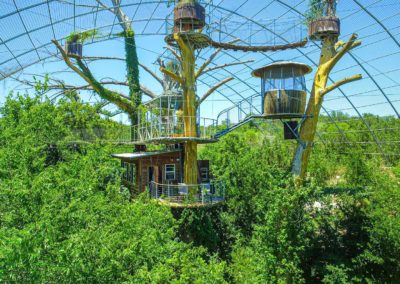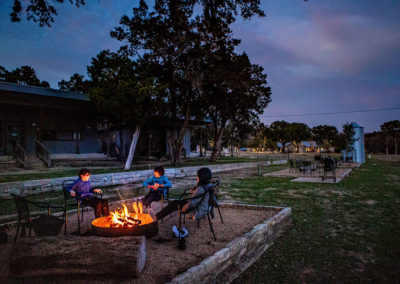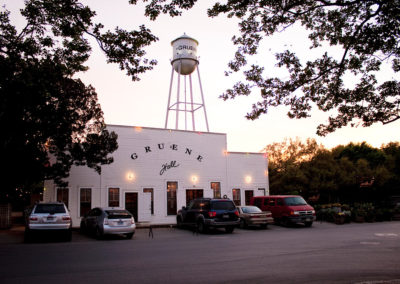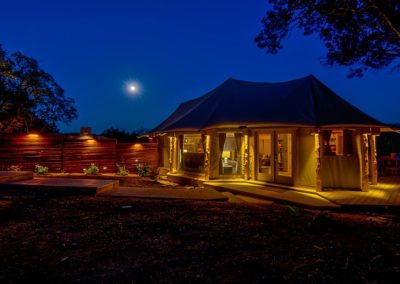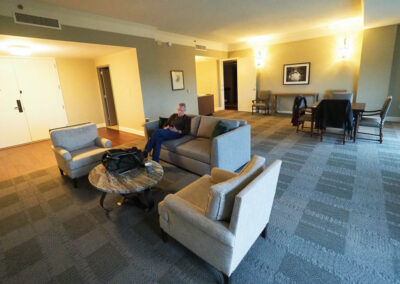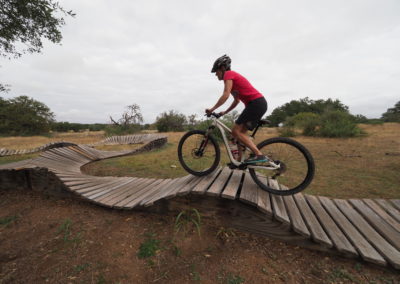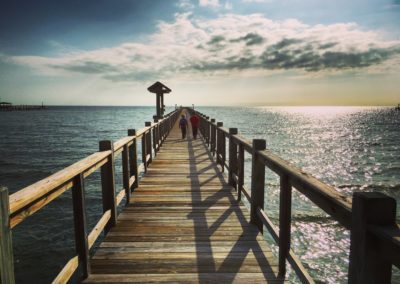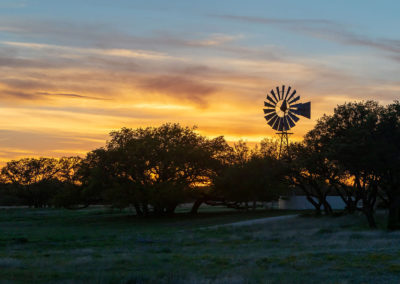
Weddings take place in this chapel at Camp Lucy. Pam LeBlanc photo
Long before Camp Lucy opened its gates to guests at an old family ranch along Onion Creek, an idea tumbled through Whit Hanks’ mind.
Could the longtime Austin real estate developer and antique shop proprietor dismantle an abandoned church in Vietnam, ship it to Texas, then reassemble it here, among the oaks and prickly pear at the edge of the Hill Country?
RELATED: The Driskill, a Staycation Steeped in History
The short answer is yes. But the long answer is more complicated.
An invitation to visit
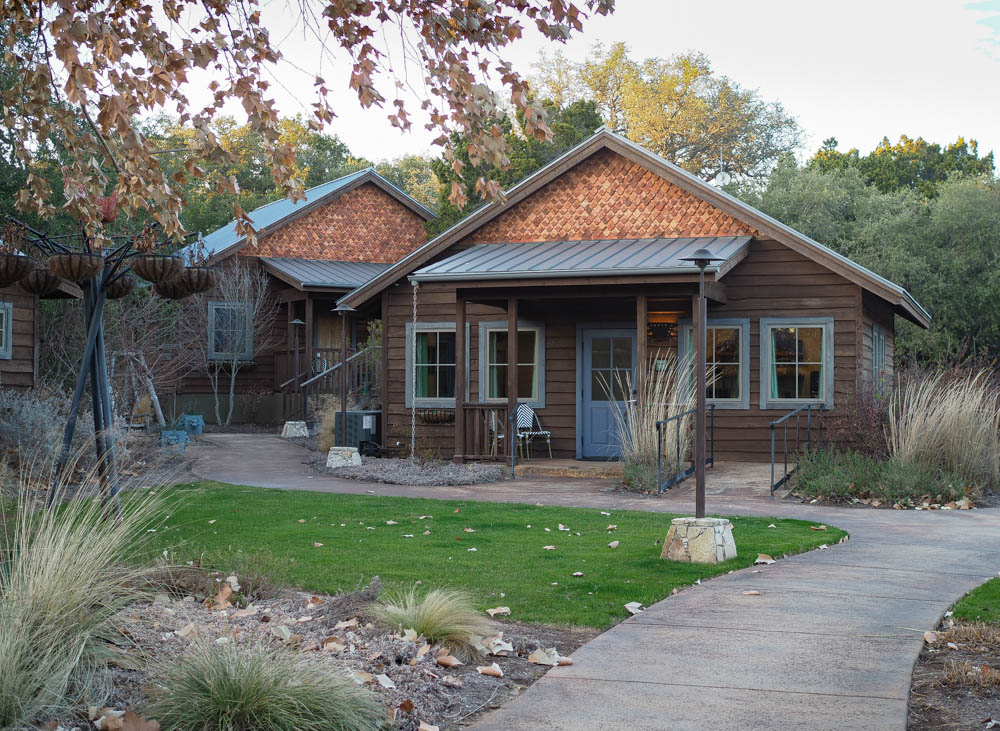
Camp Lucy near Dripping Springs hosts overnight guests and plans events. Pam LeBlanc photo
Hanks, a sixth generation Texan, real estate developer and founder of Whit Hanks Antiques in Austin (he no longer owns the shop), didn’t originally plan to turn this land near Dripping Springs into an overnight destination. But his son’s cancer diagnosis and a chance meeting with a woman running a local party rental business led him here.
Today Camp Lucy, which opened in 2010, includes 41 luxury guest rooms, facilities to host weddings and corporate events, and an upscale restaurant, all tucked atop a ridge with views of rolling hills.
I’d pedaled my bicycle past its sign on Creek Road a dozen times, but never stopped. Then in January I accepted an offer to stay the night and tour the property.
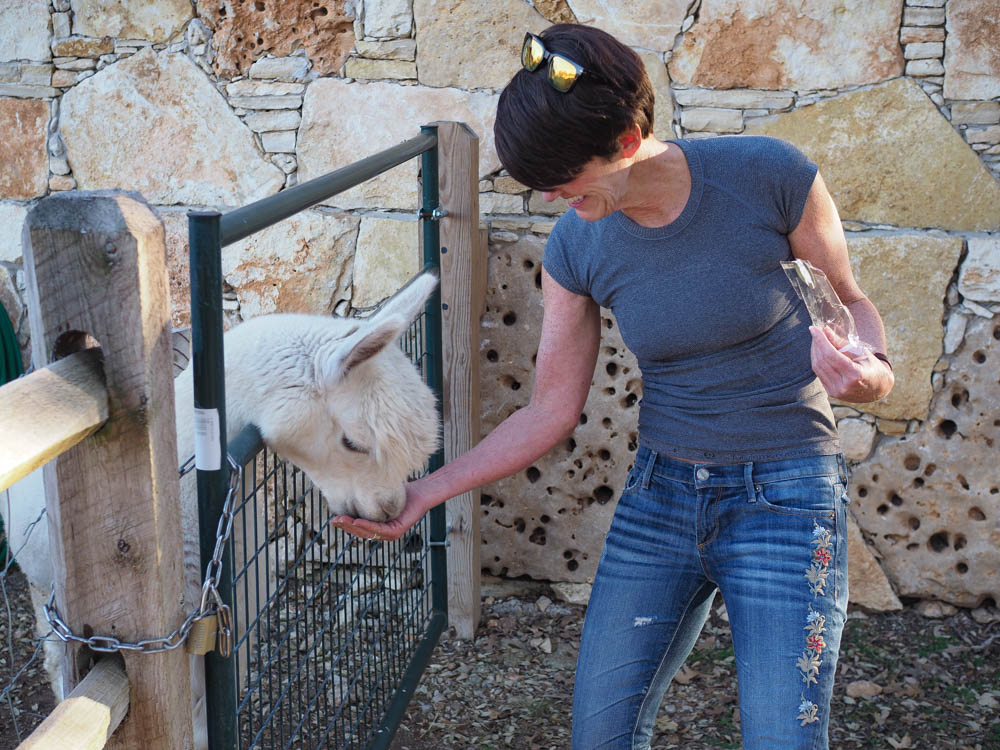
Pam LeBlanc feeds an alpaca at Camp Lucy. Chris LeBlanc photo
My husband and I drove out on a weekday afternoon. We passed through the gates and crossed a creek, pausing to look at the green pools of water. Then we puttered up a ridge, following signs to the check-in desk. There, outside the office, a trio of alpacas gazed at us from their grassy enclosure. We picked up a packet of alfalfa pellets along with a key to our room and stopped at the fence to feed the fuzzy beasts on our way out.
Our room was situated in the newest section of the property, the Treetops. We slung our bags on the bed, popped open a bottle of wine made with grapes grown at Camp Lucy, and settled into chairs on the patio. Twisted oaks, Ashe juniper, and a smattering of little yellow flowers spread out below.
Tillie’s

Tillie’s, at Camp Lucy, is housed in what was once a Town Hall building in Vietnam. Pam LeBlanc photo
Later, we walked up the hill to the onsite restaurant, Tillie’s. It opened in 2018 and is named for Hanks’ great-grandmother, Attilia –– a world traveler and early Austin land developer.
If you look closely at the huge timbers inside Tillie’s, you’ll see chalk numbers. The building once operated as a Town Hall in a small Vietnamese village. The structure was slated for destruction. Hanks bought it, and the markings helped workers reassemble it here in Texas.
More than a dozen statues of saints, each a few feet tall, stand in alcoves on opposing walls. Those statues, in a way, started everything.
Whit’s oldest son, Ian, was an Asian scholar. While Ian was living and studying in China, he learned he had a brain tumor. He stayed overseas, and as Whit traveled to visit him during his illness, he began making side trips to Vietnam. On one of those trips, Hanks met an antiques dealer selling statues salvaged from old Catholic churches that were being torn down. Hanks wanted the saints, but he wanted the churches that once held them, too.

The saints that decorate Tillie’s were salvaged from a Vietnamese church slated for destruction. Pam LeBlanc photo
Hank bought the first structure, a chapel in Ninh Bihn, Vietnam. Next, he bought two old Town Halls, including the one that now houses Tillie’s.
The restaurant, under the direction of executive chef Andy Knudson, serves American nouveau food. The menu starts with fresh-baked rosemary focaccia and includes spicy brussels sprouts, coq au vin chicken, smoked short rib ragu, and fresh fish. Knudson spent time at Restaurant Daniel in New York, Restaurant Guy Savoy in Las Vegas, and the Little Nell in Aspen –– all top tier eateries.
We ate, then headed to our room, where we flopped into bed in a haze of contentment.
The story behind Camp Lucy

The floor tiles are exquisite. Pam LeBlanc photo
Everywhere on the grounds, you’ll find reminders of Hanks’ passion for antiques and his ties to his family.
Camp Lucy is named for Whit’s mother, Lucy. Tillie’s is named for his grandmother. And Ian’s Chapel honors his late son, Ian, who died in 2011.
At first glance, it’s an eclectic mashup of style. Somehow, though, a dollop Hill Country, seasoned with a liberal shake of rural Vietnam, goes well with a smattering of big city polish.
In all, seven structures from Vietnam were moved here.
“Whenever I go into the Town Hall now, I can feel the celebration from the past,” Whit’s wife Kim says.
The couple met at an open house in 2009, not long after Kim had launched a party rental business in Dripping Springs. She encouraged Whit to use his Dripping Springs property as a wedding venue.
“I had a new business and only two wedding venues (available for use) at the time, and I was bent on doing events,” Kim says.

The Treetops rooms are spacious and comfortable. Pam LeBlanc photo
Hanks liked the idea, and Camp Lucy officially opened in 2010. In 2012 the two teamed up to form Whim Hospitality. The couple married a few years later.
In 2014, the Estate Rooms –– a cluster of luxurious little wooden cabins with well-equipped kitchenettes, tile floors, cushy beds and tubs that look like huge oval-shaped marble eggs –– were added. A year later, Whit’s Inn, the old ranch’s original homestead, was renovated and opened for rental. Then came the more modern Vista Rooms overlooking the rolling hillside. The Treetop rooms, where I stayed, are newest, circa 2020.
Special spaces at Camp Lucy
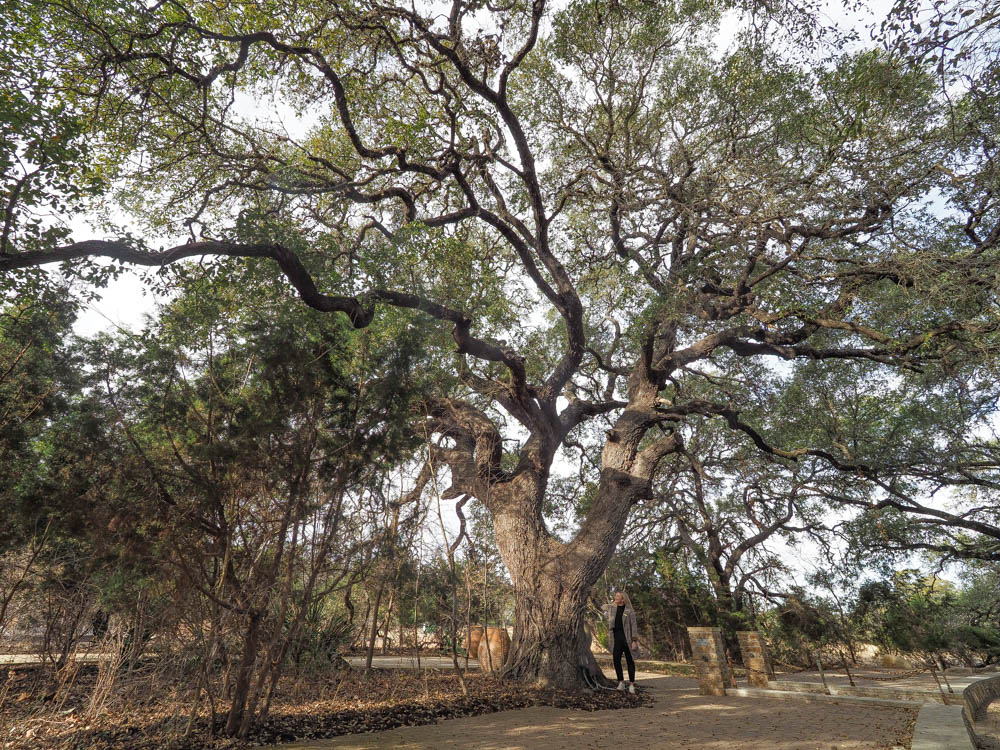
This escarpment oak is one of hte largest of its kind in the area. Pam LeBlanc photo
But it’s the repurposed old buildings that serve as event spaces that make Camp Lucy special.
Hanks enlisted the help of facility designer Paul Smith, who says his main job is “how to make Vietnamese buildings into functional spaces.”
Hanks also brought in an old Amish barn from Ohio that now serves as a reception hall. In one corner of the building, you can run your fingers across a cross scratched onto a stone the size of a bread box. The barn, our guides explain, was once part of the Underground Railroad. Slaves trying to escape north to freedom came to this barn. They felt for the cross on the stone, which marked the opening to a hiding space beneath the hay. In a spot called Sacred Oaks, popular for weddings, stands a tree so big you can’t wrap your arms around it. In 2013, the Hays County Historical Commission listed the leafy green umbrella as the largest escarpment oak in the county.
About 200 weddings and 100 corporate events take place at Camp Lucy every year, and there’s a growing business from overnight guests looking for a place to stay while they explore the surrounding wine country.
Outside, you might find people playing ultimate frisbee (we did), or a bride getting her hair done in a luxurious cabin next to the chapel.
In a gift shop, visitors can buy a bottle of Camp Lucy’s signature scent, Lasso. (It reminds me of leather mixed with a campfire, in a good way.) They can take hatchet throwing classes, cast for fish, book an olive oil tasting, play archery, or hike short trails that weave through the 282-acre grounds. They can also tiptoe through a 4.5-acre vineyard, which produces grapes made into wine by nearby Bending Branch Vineyards.

This cross etched into rock from an Amish barn in Ohio indicated a hiding place for escaped slaves on the Underground Railroad. Pam LeBlanc photo
What’s next for Camp Lucy
The Hanks have more plans for their retreat along Onion Creek.
A new spa, with a focus on communal spaces for men and women, is in the planning stages, with an expected opening in early 2024.
And farther afield, the Hanks have added another property to their portfolio.
RELATED: Relax and Unwind in Round Top, Texas
Whit traces his family roots to Malmesbury, in the Cotswalds region of England, and over the years has made several visits to the area.
Then he went a step farther, buying an 800-year-old hotel called The Old Bell Hotel there. What he didn’t know at the time but uncovered while studying documents as he finalized the purchase, is that one of his ancestors once ran the very same hotel.











